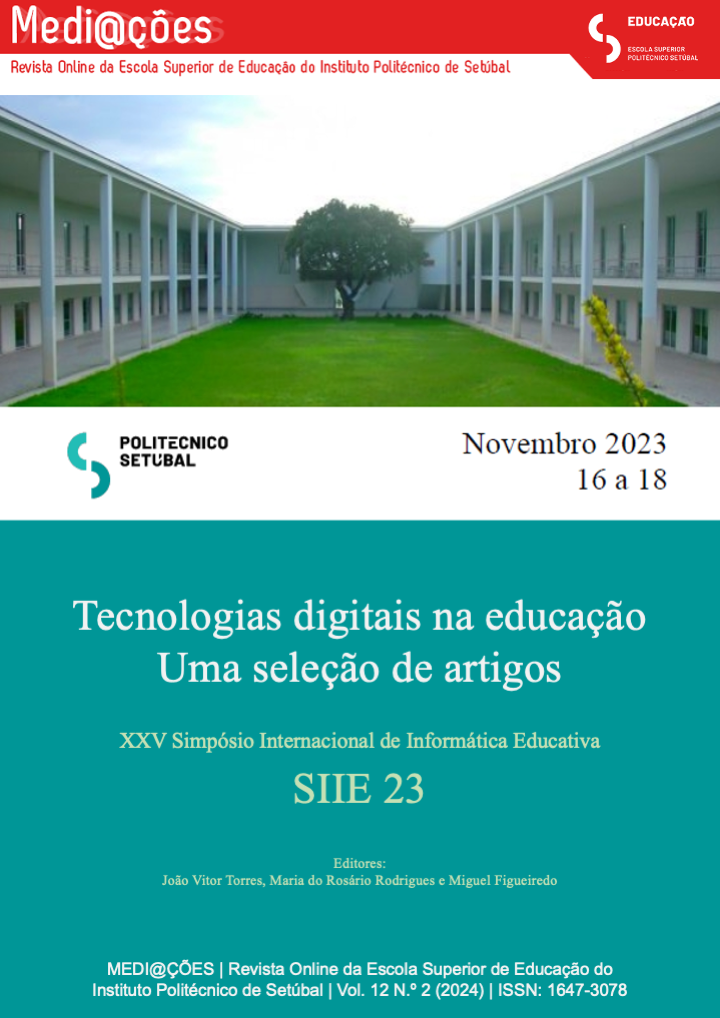Systematic Review of Educational Practices with Immersive Virtual Reality in Higher Education
Contenu principal de l'article
Résumé
This study aims to analyse how learning occurs in immersive environments, their characteristics, benefits, and limitations. A systematic literature review methodology was adopted following the PRISMA protocol. The results show that Virtual Reality enables the creation of immersive virtual environments in which students can actively interact and explore. These simulated environments offer students the opportunity to experience authentic situations and apply their knowledge in a practical way.
Renseignements sur l'article
Comment citer
Bicalho, D. R., Piedade, J. M. N., & Matos, J. F. de L. M. (2024). Systematic Review of Educational Practices with Immersive Virtual Reality in Higher Education. Medi@ções, 12(1), 95–111. https://doi.org/10.60546/mo.v12i1.410
Rubrique
Dossier

Cette œuvre est sous licence Creative Commons Attribution 4.0 International.
La revue en ligne Medi@ções demande l'accord avec la déclaration de copyright.
Tous les contenus sont sous licence conformément à Creative Commons Attribution 4.0
